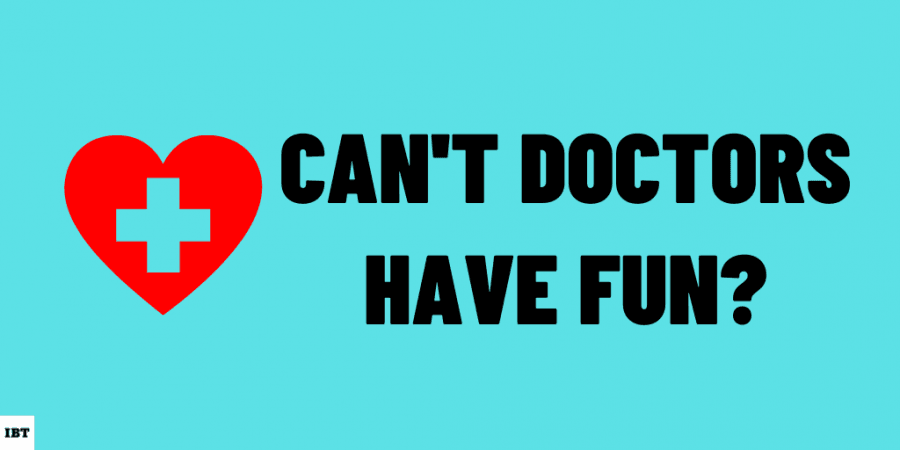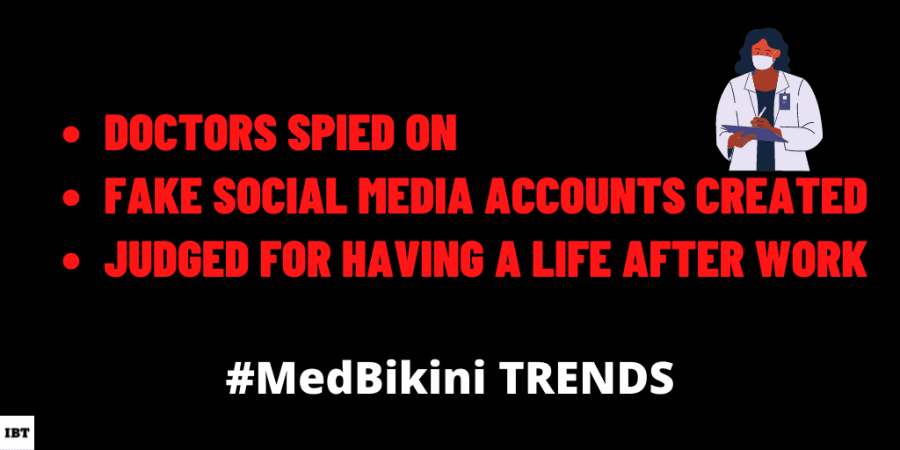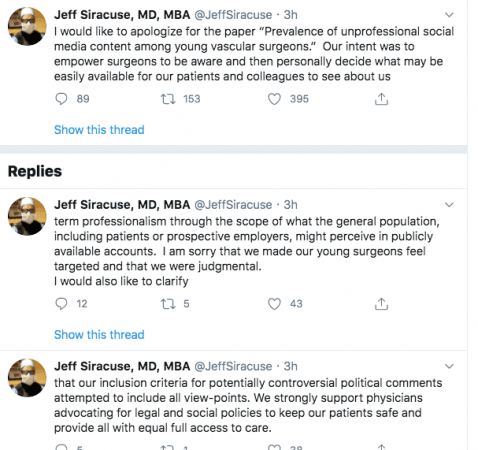
A few men got together and created fake social media accounts for a "scientific study". They were to study the 'prevalence of unprofessional social media content among young vascular surgeons'. Yes, you read that right.
This was the objective behind this study apparently, "it has been demonstrated that publicly available social media content may affect the patient choice of physician, hospital, and medical facility. Furthermore, such content has the potential to affect professional reputation among peers and employers. Our goal was to evaluate the extent of unprofessional social media content among recent vascular surgery fellows and residents," the paper reads.
The doctors who conducted this "study" used the Association of Program Directors in Vascular Surgery's directory to compile a list of graduating vascular surgery trainees from 2016 to 2018.
Here's the "ridiculous" observation this "half baked" study made, "Clearly unprofessional content included: Health Insurance Portability and Accountability Act violations, intoxicated appearance, unlawful behavior, possession of drugs or drug paraphernalia, and uncensored profanity or offensive comments about colleagues/work/patients."
All this was done using "fake social media accounts" to spy on the said graduating doctors thereby violating their privacy.
Huge demand for this study to be retracted
"WTF did I just read," wrote a shocked, Dr. Darren Saunders.
"How did this get published?! This is absolutely "collected" unethically. Identifying vascular surgery candidates, and collecting "unprofessional" content could hurt their hard-earned careers. But nothing about the content is scholarly or relevant. It's creepy," feels Jonathan R Lundkvist.
"So this study was published shaming physicians for being "unprofessional" by wearing bikinis or holding a beer in a photo? And the study was conducted by 3 men who created fake social media accounts to spy on applicants? This "study" must be retracted."
"If you are a true (#)heforshe then you must speak up against this disturbing study. 3 men created fake social media accounts to purposefully spy on applicants. Worse they are shaming our women physician colleagues for wearing bikinis" feels Dr. Mudit Chowdhary.
"Retract this paper. No operational definition is given of "inappropriate attire" and all three social media reviewers male. This implies preferred dress code which is known to be biased against women," wrote Angela Campbell.
How the study led to #MedBikini trending
Soo after this study was posted on social media; doctors from around the world got together to protest against it in a novel and rather befitting way. The doctors started posting their pics in Bikinis, some consuming alcohol in their private time and space with the hashtag "Medbikini".
"Although no one will want to see this Dad bod here it is in full support of my female colleagues and this misogynistic study. Without my female mentor in medschool and the one in residency, I wouldn't be the surgeon I am today," wrote Dr. Anthony Tucker.
"I would be more inclined to trust a doctor who has a social media account that actually shows a person rather than just posts about their job or moderated family pictures. If my doctor was at the beach with beer and friends, I can trust they know how to relax on downtime, wrote another user.
"Apparently it's unprofessional for doctors to post social media pics wearing bikinis & drinking alcohol, so here's me doing both. #MedBikini
Also deemed unprofessional, profanity & political talk but these dudes can fuck off b/c health care should be free at the point of care," wrote Dr. Victoria Dooley.
"It breaks my heart, but this just shows a peak behind the curtain at how behind and backwards the culture in medicine is. Here's a picture of me after finishing my leading Research Thesis on Emergency Vehicle Trauma. Doctors are people too," wrote Emily Casey.
"So I don't have a #MedBikini photo bc of personal/religious reasons for not wearing & posting photos in one, but the study had Halloween photos listed too right? Here's my #MedHalloween photo instead! For extra unprofessionalism, I have a wolf's head in my basket too!," wrote Nadia Jamil, M.D.
"Because... medbikini also... Women's rights are human rights. Black lives matter. Love is love. Science is real. Wear a mask. No human is illegal. Fuck Trump. Is that enough unprofessional content for you?," feels Janel Paukovits.
Misogyny is medieval. Do I have to wear my white coat at all times to deserve the title of "professional"? Fun, sexy, smart & hard-working can exist in the same space. I can wear swimwear to the beach in my free time & be a competent & compassionate physician at work.," feels Vera Bajarias, MD.
"I am good at my job, I am a professional. I am a doctor. I am also a human.
So to anyone who wishes to take issue with it.....Sod off. Yes, this is an alcoholic mojito," wrote Stephanie DeGiorgio.

Here's are the highlights from the controversial paper:
Abstract
It has been demonstrated that publicly available social media content may affect patient choice of physician, hospital, and medical facility. Furthermore, such content has the potential to affect professional reputation among peers and employers. Our goal was to evaluate the extent of unprofessional social media content among recent vascular surgery fellows and residents.
Objective
It has been demonstrated that publicly available social media content may affect patient choice of physician, hospital, and medical facility. Furthermore, such content has the potential to affect professional reputation among peers and employers. Our goal was to evaluate the extent of unprofessional social media content among recent vascular surgery fellows and residents.
Methods
The Association of Program Directors in Vascular Surgery directory was used to compile a list of graduating vascular surgery trainees from 2016 to 2018. Neutral Facebook, Twitter, and Instagram accounts were used to search for publicly available information. All content was screened by two separate investigators for prespecified clearly unprofessional or potentially unprofessional content. Clearly unprofessional content included: Health Insurance Portability and Accountability Act violations, intoxicated appearance, unlawful behavior, possession of drugs or drug paraphernalia, and uncensored profanity or offensive comments about colleagues/work/patients. Potentially unprofessional content included: holding/consuming alcohol, inappropriate attire, censored profanity, controversial political or religious comments, and controversial social topics. Descriptive data were compiled and Fisher exact test was used for categorical comparisons.
Results
There were 480 vascular surgeons identified. 325 (68%) were male, 456 (95%) held MD degrees, and 115 (24%) were integrated (0 + 5) vascular surgery residents. Of these, 235 had publicly identifiable social media accounts across all platforms. Sixty-one (26%) account holders had either clearly unprofessional or potentially unprofessional content. Eight accounts (3.4%) contained content categorized as clearly unprofessional: obvious alcohol intoxication in three Facebook accounts and uncensored profanity or offensive comments about colleagues/work/patients in one Facebook and five Twitter accounts. Potentially unprofessional content appeared in 58 accounts (25%) and included holding/consuming alcohol (29 accounts, 12.3%), controversial political comments (22 accounts, 9.4%), inappropriate/offensive attire (9 accounts, 3.8%), censored profanity (8 accounts, 3.4%), controversial social topics (6 accounts, 2.5%), and controversial religious comments (2 accounts, .9%). There was no significant difference in unprofessional content across sex, training paradigm (MD vs non-MD), or residency track (0 + 5 or 5 + 2; all P > .05). However, there was more unprofessional content for those who self-identified as vascular surgeons (33% vs 17%; P = .007).
Conclusions
One-half of recent and soon to be graduating vascular surgery trainees had an identifiable social media account with more than one-quarter of these containing unprofessional content. Account holders who self-identified as vascular surgeons were more likely to be associated with unprofessional social media behavior. Young surgeons should be aware of the permanent public exposure of unprofessional content that can be accessed by peers, patients, and current/future employers.
And in case the said study is deleted, we have gone ahead and kept an archive for you: https://web.archive.org/web/20200724142249/https://www.jvascsurg.org/article/S0741-5214%2819%2932587-X/abstract
Authors Apologise
Few authors have since issued an apology ("copy-paste apology, straight from a PR from", as some doctors call it):

Are you a doctor? How does this study make you feel? Please write to us on editor@ibtimes.co.in with MEDBIKINI in the subject line. We would love to share your story.















